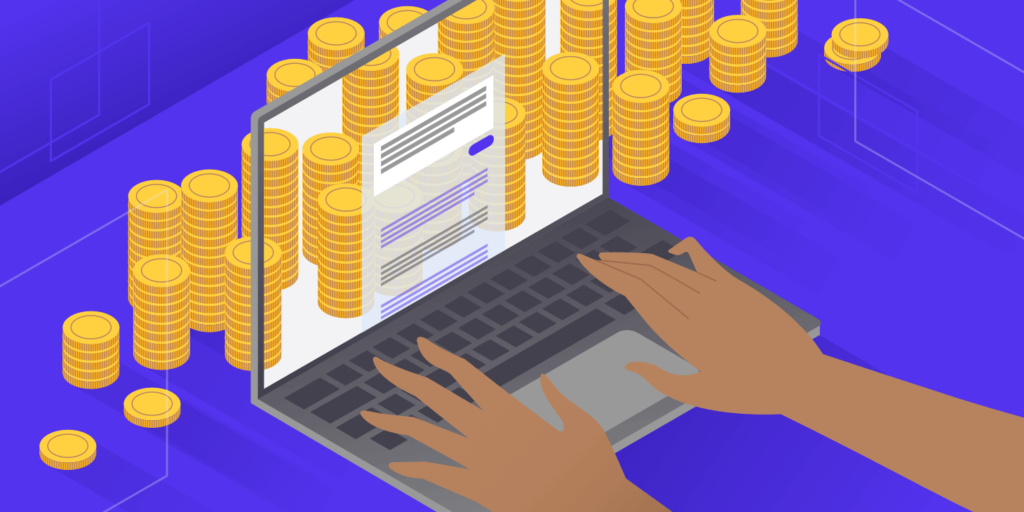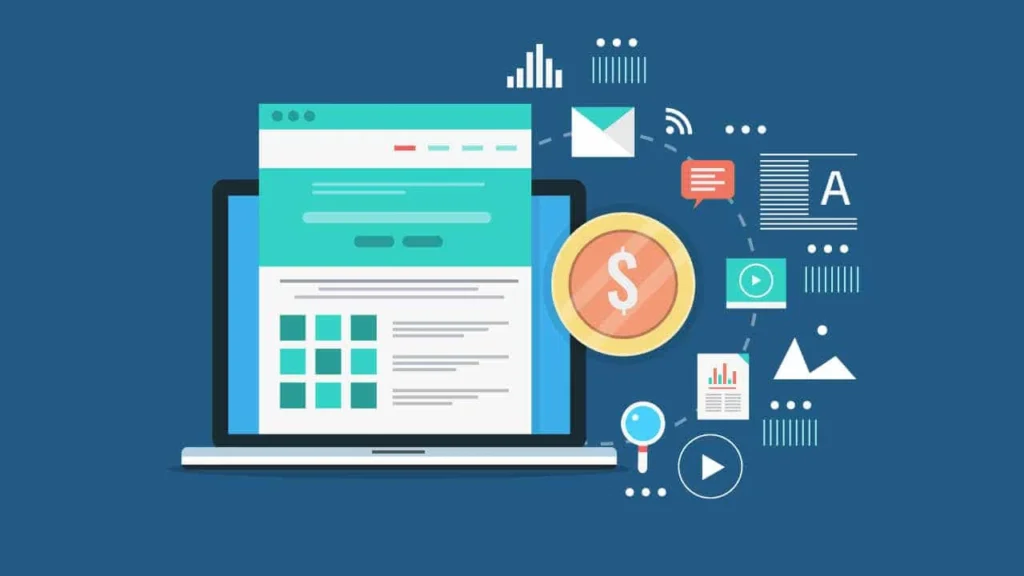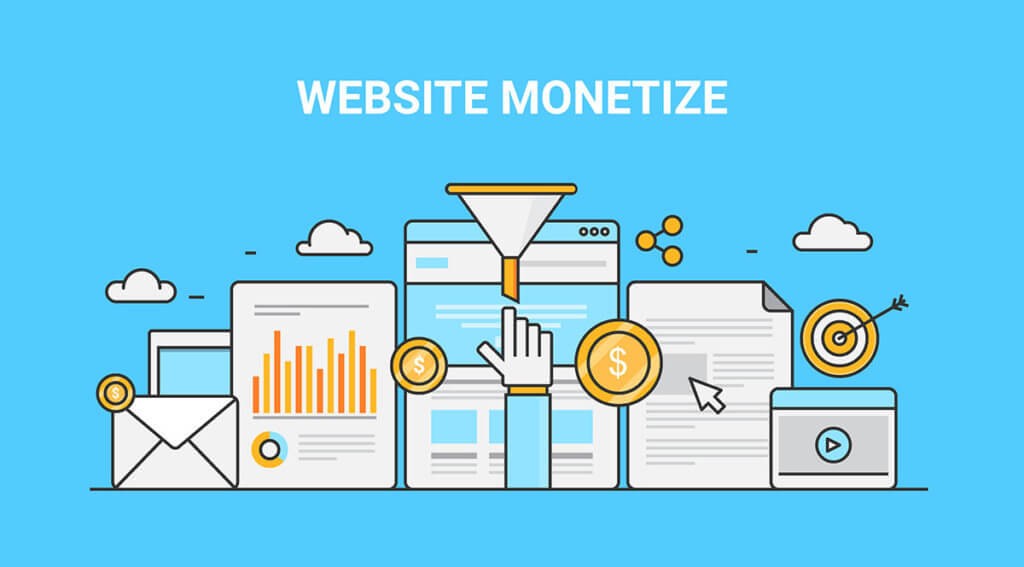Picture this: You’re sipping coffee at your favorite café, typing away on your laptop, and earning money doing what you love—sharing your passion with the world. Sounds like a dream? It doesn’t have to be. Did you know that bloggers in profitable niches can earn upwards of $10,000 a month—or even more? The catch? Knowing how to monetize a blog the right way.
Maybe you’ve heard the hype: “Start a blog, slap on some ads, and watch the cash roll in!” But if you’ve tried that and ended up frustrated (or worse, broke), you’re not alone. The truth is, monetizing a blog isn’t about shortcuts—it’s about strategy. And that’s where most beginners get stuck.
This guide isn’t another vague list of “ideas” or empty promises. It’s your roadmap to turning your blog from a hobby into a legitimate income stream. Whether you’re a seasoned writer looking to profit from your expertise or a newbie wondering how to earn money from blogging without selling your soul, we’ve got you covered.
Here’s the good news: You don’t need a massive audience, a tech background, or luck to succeed. You just need a plan. Over the next few sections, you’ll discover proven monetization strategies—from affiliate marketing to selling your own products—and learn how to avoid the pitfalls that trip up most bloggers.
Ready to stop leaving money on the table? Let’s turn those late-night brainstorming sessions into something that pays the bills.
Foundational Steps Before Monetizing

When you’re thinking about how to monetize a blog, the foundation you build determines your success. Without a solid starting point, you’ll struggle to attract readers, let alone earn from your efforts. Let’s break down the essentials to help you establish a blog that’s primed for profitability.
1. Niche Selection
If there’s one thing you should nail down first, it’s your niche. Broad topics like “food” or “travel” might seem appealing, but they’re saturated and difficult to compete in. Instead, go specific. Think “vegan recipes for busy moms” or “travel tips for solo female authors.” Specific niches help you stand out, attract a loyal audience, and position yourself as an expert. Readers (and Google) love blogs that cater to well-defined interests, making this a non-negotiable step in how to start a profitable blog.
Here’s the key: Choose a niche that blends your passion with profitability. Use tools like Google Trends or Ubersuggest to check demand, and don’t forget to validate it with competitor research.
2. Content Quality
Your content is your currency in the blogging world. High-quality, evergreen posts that offer solutions to your readers’ problems are the backbone of successful blogs. For example, instead of writing about “top writing tips,” focus on SEO-friendly evergreen posts like “10 Steps to Self-Publish Your First Novel” or “How Authors Can Build a Personal Brand.” Remember, content that resonates with your audience has better chances of driving traffic—critical when learning how to earn money from blogging.
3. Audience Building
Building an audience isn’t just about growing your Instagram following. You need to create a dedicated community, and email lists are your most valuable asset. Here’s why: social media algorithms change, but email access stays consistent. Platforms like Mailchimp or ConvertKit can help you grow and nurture your list.
Start with:
- Offering a freebie, like an eBook or a writing resource guide.
- Promoting sign-ups on social media and within your blog posts.
- Engaging regularly with your subscribers through value-packed emails.
A loyal audience is what separates a struggling blogger from a profitable one. If you’re serious about monetizing blogs, make audience-building a priority.
4. SEO Basics
No matter how great your content is, it won’t make money if nobody reads it. That’s where SEO (search engine optimization) comes in. Mastering SEO ensures your blog is visible on search engines like Google, bringing organic traffic to your site. Here are the blogging basics you can’t skip:
- Keyword Research: Use tools like Ahrefs or SEMrush to identify terms that your audience searches for, such as “how to monetize a blog.”
- On-Page SEO: Optimize title tags, meta descriptions, and headers for target keywords.
- Mobile Optimization: Ensure your site doesn’t face issues on smart phones since over half of online traffic comes from phones.
Consistency with SEO is what eventually converts random readers into regular visitors—and helps you climb Google rankings. However, don’t overdo it or make it a priority such that you divert from your main goal of creating content for people rather than Google. Remember, real people want to read your content, and Google wants to rank it for people, so rather than make your blog for Google, make it with the intent of helping someone.
5. Keeping it Consistent
One of the easiest traps to fall into is sporadic posting. If readers don’t know when to expect new content, they’ll move on to someone who’s more reliable. A consistent posting schedule builds trust with your audience and shows Google you’re active, which boosts your rankings.
Here’s how to stay consistent:
- Make an editorial calendar to map out topics in advance.
- Update your older posts when needed to keep them relevant and high-ranking.
- Start small—maybe one post a week—and scale up as you build your workflow.
The Different Methods to Monetize Your Blog

Now that your blog’s foundation is rock solid let’s dive into the exciting part: making money. When it comes to how to monetize a blog, there’s no one-size-fits-all approach. Different methods work for different niches, so it’s all about picking the ones that align with your audience and goals. Here’s a breakdown of some tried-and-true blog monetization strategies to turn your hard work into real revenue.
1. Affiliate Marketing
Affiliate marketing is among the easiest and effective ways to start making money from your blog. Here’s how it works: you promote a product or service using a unique link, and when someone purchases through that link, you earn a part of it as commission. Think Amazon Associates, ShareASale, or niche-specific affiliate programs like writing tools for authors.
2. Display Advertising
If you’ve got a steady stream of visitors, display ads can generate a consistent income stream. Ads are typically managed through networks like Google AdSense, or for higher-traffic blogs, premium platforms like Mediavine or AdThrive.
Google AdSense vs. Premium Networks:
- Google AdSense is beginner-friendly and easy to implement but offers lower payouts.
- Premium networks like Mediavine and AdThrive require higher traffic but reward you with better CPM (cost per thousand impressions) rates and ad placement control.
Please Note: Overloading your blog with ads can hurt readability and drive users away. Use ads strategically, ensuring they don’t overshadow your content. This balance is critical for long-term blog success when focusing on monetizing a blog for beginners.
3. Sponsored Content & Brand Partnerships
Sponsored posts and brand collaborations are gold mines for bloggers with engaged audiences. Companies will pay you to feature their products or services, but this only works when your blog has credibility.
How to Land Partnerships:
- Pitch to brands directly: Highlight your blog’s value and why your audience is a perfect fit for their product.
- Set clear rates: Know your worth and factor in your audience size, niche, and engagement metrics when negotiating.
- Stay compliant: FTC rules require that sponsored content be clearly marked.
Platforms to Try:
Use tools like AspireIQ, Collaborations, or even LinkedIn to connect with brands in your niche.
4. Sell Your Own Products/Services
Why recommend someone else’s product when you can sell your own? This method offers some of the highest profit margins and is ideal for authors who already have the skill or expertise to monetize.
1. Digital Products:
eBooks, courses, writing templates, or even book marketing guides are perfect for turning your knowledge into passive income.
2. Physical Products:
Print-on-demand merch like mugs or T-shirts featuring quotes from your books can work well for an engaged audience.
3. Services:
If you’re an experienced writer, services like coaching, editing, or even freelance writing can generate significant income while building your brand.
4. Membership & Subscription Models
Want a predictable income? Membership models allow you to offer exclusive content to your most loyal followers.
How It Works:
Platforms like Patreon or MemberPress enable readers to subscribe for perks such as:
- Exclusive webinars or Q&A sessions.
- Access to private communities where they can interact with you directly.
This works especially well for niche audiences that value insider access.
5. Lead Generation for Businesses
If your blog attracts a highly specific audience, you can partner with businesses that want access to your readers. For example, if you blog about writing tools, you could collaborate with software companies looking to reach authors.
6. Diversify with YouTube, Podcasts, or Email Newsletters
Why stop at one platform? Repurpose your blog content into other formats to reach a broader audience.
- YouTube: Create tutorials or behind-the-scenes videos to complement your blog.
- Podcasts: Discuss writing topics in-depth to engage listeners.
- Email Newsletters: Build deeper connections with your audience while promoting your monetized content.
Avoiding Common Monetization Mistakes

By now, you’ve laid the groundwork for how to monetize a blog and explored some of the most effective ways to turn your blog into a source of income. But even with the best intentions, it’s easy to fall into traps that can derail your progress. Let’s address some common monetization mistakes that could leave you wondering “why my blog isn’t making money.”
1. Overloading with Ads:
It’s tempting to plaster your blog with ads when you’re just starting to monetize. After all, more ads mean more revenue, right? Not quite. Excessive ads can overwhelm your readers, slow down your site, and hurt your SEO rankings. Google penalizes sites with poor user experience, and nothing frustrates readers more than being bombarded with pop-ups or banner ads.
Here’s how to avoid this pitfall:
- Prioritize quality over quantity: Choose high-paying ad networks like Mediavine or AdThrive instead of overcrowding your blog with low-value ads.
- Optimize placement: Focus on non-intrusive ad placements, such as sidebar or footer ads, to ensure they don’t interrupt your content.
- Test your speed: Use tools like Google PageSpeed Insights to ensure ads aren’t slowing down your site.
2. Ignoring SEO
SEO might seem overwhelming at first, but ignoring it is one of the biggest mistakes bloggers make. Without proper search engine optimization, your blog won’t get the visibility it needs to generate traffic, let alone income. Even the best content won’t monetize itself if nobody can find it.
3. Promoting Irrelevant Products
Your readers come to your blog because they trust your expertise and value your recommendations. Promoting irrelevant or low-quality products for the sake of quick profits will damage that trust—and once trust is lost, it’s nearly impossible to regain.
For example, if your blog focuses on resources for aspiring authors, suddenly endorsing fitness supplements will feel disingenuous and confuse your audience.
Final Note:
You’ve just uncovered the blueprint for how to monetize a blog—not with vague theories, but with actionable steps that actually work. Whether you’re dreaming of a side hustle to fund your passions or aiming to replace your 9-to-5 income, the strategies we’ve covered—affiliate marketing, sponsored content, selling your own products, and more—are your keys to turning pixels into profit.
So, what’s next? Take one step today. Maybe it’s setting up your first affiliate link, drafting a pitch to brands, or finally launching that eBook you’ve been brainstorming. Every small action builds momentum.
And if you ever feel stuck, come back to this guide. Bookmark it. Share it. Use it as your roadmap. Because now that you know how to monetize a blog, the only thing standing between you and success is starting.
FAQs – Frequently Asked Questions
Q1: How long does it take to monetize a blog?
A: Most bloggers start earning within 6–12 months if they prioritize SEO, quality content, and audience building. However, timelines vary based on niche, consistency, and monetization methods. Affiliate marketing or ads may generate income faster while selling products often takes longer to scale.
Q2: Can you really make money blogging?
A: Yes! Top bloggers earn $10,000+ per month through diversified strategies like affiliate marketing, sponsored posts, and digital products. Success depends on your niche, traffic, and how well you implement blog monetization strategies.
Q3: Do I need technical skills to monetize a blog?
A: No. Platforms like WordPress and Shopify are user-friendly, and tools like Google AdSense or ConvertKit require minimal setup. Focus on learning SEO basics and creating valuable content—you can outsource technical tasks later as you scale.
Q4: What’s the easiest way for beginners to monetize a blog?
A: Start with affiliate marketing or display ads (e.g., Google AdSense). Both require low upfront effort and no product creation. As your audience grows, add sponsored content or sell digital products like eBooks.
Q5: How much traffic do I need to monetize a blog?
A: Ad networks: 10k+ monthly pageviews for premium networks like Mediavine.
Affiliate marketing: Even small, targeted traffic can convert if your audience trusts you.
Sponsored posts: Brands may partner with blogs with 5k+ monthly visitors if engagement is high.
Q6: Can I monetize a blog without SEO?
A: While possible (e.g., through social media traffic), SEO is critical for long-term growth. Organic search traffic is free, consistent, and scalable—key for earning money from blogging sustainably.

